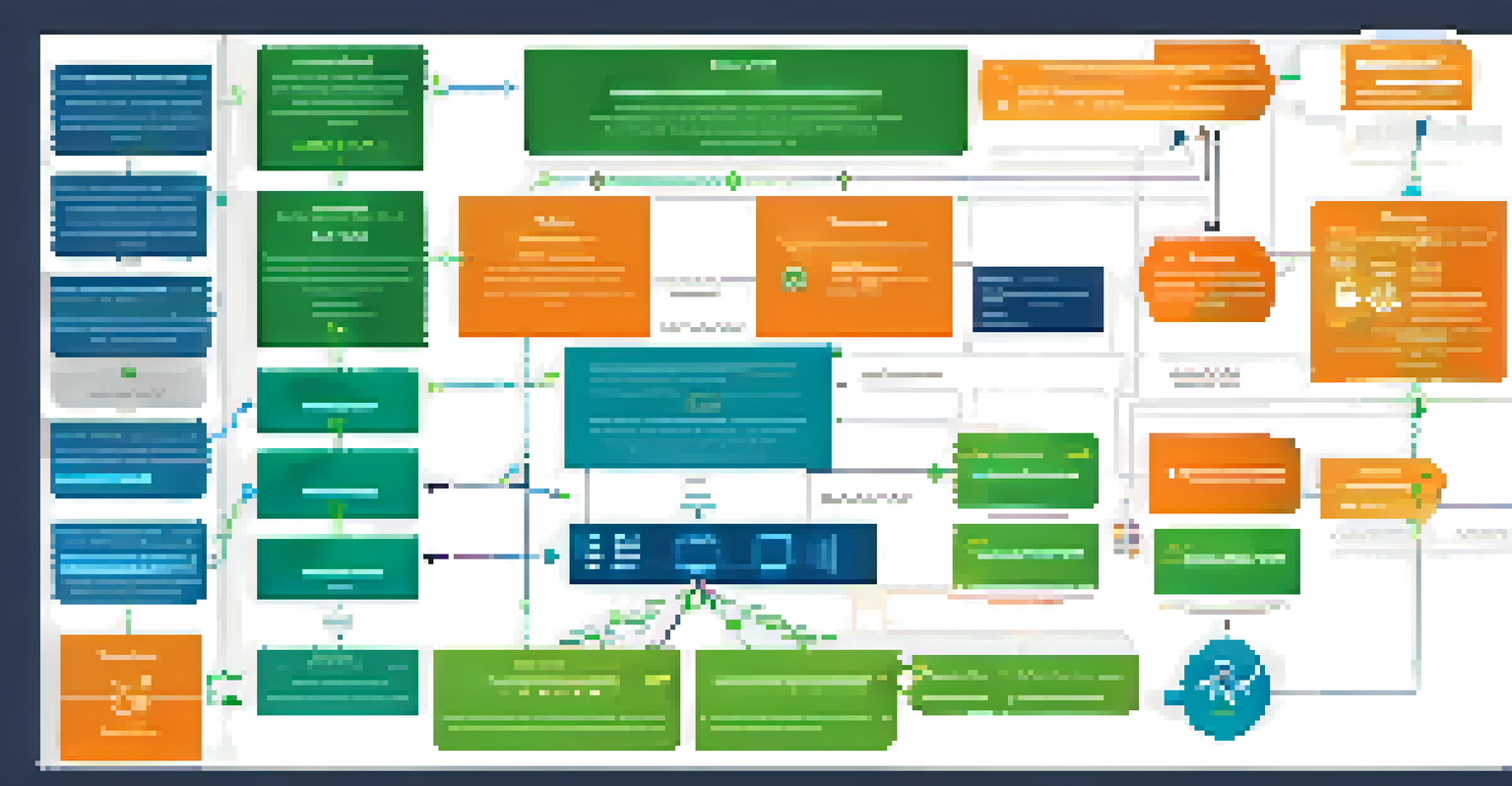Smart Contracts: The Technology Behind Decentralized Exchanges

What Are Smart Contracts and How Do They Work?
Smart contracts are self-executing contracts where the terms are directly written into code. They automatically enforce and execute the agreement when certain conditions are met, eliminating the need for intermediaries. Think of them as digital vending machines: you put in your money (or cryptocurrency), and the machine delivers your product without needing a cashier.
Smart contracts are like digital agreements that execute themselves when conditions are met, transforming the way we engage in transactions.
These contracts run on blockchain technology, which is a decentralized digital ledger. This means that once a smart contract is deployed, it cannot be changed, ensuring transparency and trust among users. For example, if you trade tokens on a decentralized exchange (DEX), a smart contract facilitates the transaction to ensure both parties uphold their end of the bargain.
Overall, smart contracts streamline processes, reduce costs, and increase efficiency in transactions. As they eliminate human error and the possibility of fraud, they are essential to the functionality of decentralized exchanges.
Decentralized Exchanges: A Brief Overview
Decentralized exchanges (DEXs) allow users to trade cryptocurrencies without a central authority. Unlike traditional exchanges, where you might rely on a company to manage your trades, DEXs give you full control over your assets. This means you can trade directly from your wallet, enhancing privacy and security.

One of the main benefits of DEXs is that they operate on a peer-to-peer basis, allowing for greater autonomy and fewer restrictions. Imagine a marketplace where you can barter directly with others without needing a store to manage the trades. This direct interaction minimizes the risk of hacking and fraud that centralized exchanges often face.
Smart Contracts Enable Trustless Trading
Smart contracts automate and enforce trading agreements without intermediaries, ensuring secure transactions on decentralized exchanges.
Furthermore, DEXs typically support a wider variety of tokens compared to their centralized counterparts. This accessibility encourages innovation in the crypto space, allowing new projects to flourish and users to explore diverse investment opportunities.
Why Smart Contracts Are Essential for DEX Functionality
Smart contracts are the backbone of decentralized exchanges, enabling trustless trading between users. By automating the trading process, they ensure that transactions are executed exactly as agreed without the need for a middleman. This trustless environment is crucial for the adoption of DEXs among users who prioritize security.
Decentralized exchanges represent a paradigm shift in how we think about trading and ownership in the digital age.
Additionally, smart contracts facilitate liquidity pools, which are essential for trading on DEXs. These pools allow users to contribute their assets, providing the necessary liquidity for others to trade. In this sense, smart contracts act as automated market makers, ensuring that trades can occur efficiently and at fair prices.
Without smart contracts, the entire premise of decentralized exchanges would crumble, as users would have no assurance that their trades would be honored. By providing a secure and reliable framework for transactions, smart contracts empower users to engage in trading with confidence.
The Role of Blockchain in Smart Contracts
Blockchain technology underpins smart contracts, providing a secure and transparent platform for their execution. Each transaction involving a smart contract is recorded on the blockchain, creating an immutable record that can be audited by anyone. This transparency helps build trust among users, as they can verify that the contract has executed correctly.
Moreover, blockchain's decentralized nature means that no single entity controls the data, making it resistant to censorship and fraud. It's akin to having multiple copies of a book in different libraries; even if one library is closed, the information remains accessible elsewhere.
Blockchain Ensures Transparency
The decentralized nature of blockchain technology provides a secure and transparent environment for executing smart contracts.
In essence, blockchain enhances the reliability of smart contracts, allowing users to trade confidently on decentralized exchanges. This synergy between blockchain and smart contracts is what makes DEXs a revolutionary force in the cryptocurrency trading landscape.
Security Features of Smart Contracts
One of the standout features of smart contracts is their robust security measures. Since they run on a blockchain, they benefit from cryptographic techniques that protect against unauthorized access and tampering. This is similar to how a safe keeps your valuables secure, providing peace of mind for users trading on DEXs.
Additionally, smart contracts can incorporate multi-signature functionality, requiring multiple approvals before executing a transaction. This adds an extra layer of security, ensuring that no single party can manipulate the contract for their own benefit. By distributing control, users can collaborate safely and securely.
However, it's essential to note that while smart contracts are generally secure, they are not entirely immune to vulnerabilities. Therefore, conducting thorough audits and employing best practices during development is crucial to prevent potential exploits. This diligence helps maintain the integrity of both the contracts and the exchanges they operate on.
Challenges and Limitations of Smart Contracts
Despite their advantages, smart contracts are not without challenges. One significant issue is the potential for bugs or vulnerabilities in the code, which can lead to unintended consequences. Just like a poorly written recipe can ruin a dish, a flaw in the smart contract can result in significant financial losses.
Moreover, smart contracts are only as good as the data they receive, often reliant on external sources known as oracles. If an oracle provides inaccurate information, it can compromise the contract's execution. This dependency introduces an additional layer of complexity and risk that users must consider.
Future Growth of DEXs and DeFi
As technology advances, user-friendly decentralized exchanges will emerge, making crypto trading more accessible to everyone.
Lastly, the regulatory landscape surrounding smart contracts and decentralized exchanges is still evolving. As governments seek to understand and regulate this emerging technology, uncertainty can create hurdles for widespread adoption. Navigating these challenges is essential for the continued growth of DEXs and the smart contracts that power them.
The Future of Smart Contracts and DEXs
Looking ahead, the future of smart contracts and decentralized exchanges appears promising. As the technology matures, we can expect an increase in user-friendly platforms that make trading easier for everyone, from beginners to seasoned traders. Imagine a world where anyone can participate in the crypto economy without needing extensive technical knowledge.
Moreover, advancements in Layer 2 solutions and interoperability between blockchains may enhance the efficiency and scalability of DEXs. This means faster transactions and lower fees for users, making decentralized trading more accessible than ever. It's like upgrading from a slow, clunky bus to a sleek, high-speed train.

Ultimately, as more people embrace decentralized finance (DeFi), smart contracts will become integral to how we conduct business and engage in transactions online. This evolution promises to reshape the financial landscape, empowering individuals and fostering innovation across industries.